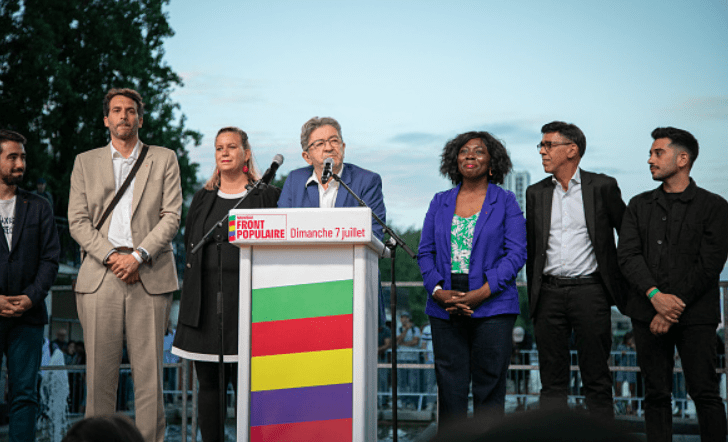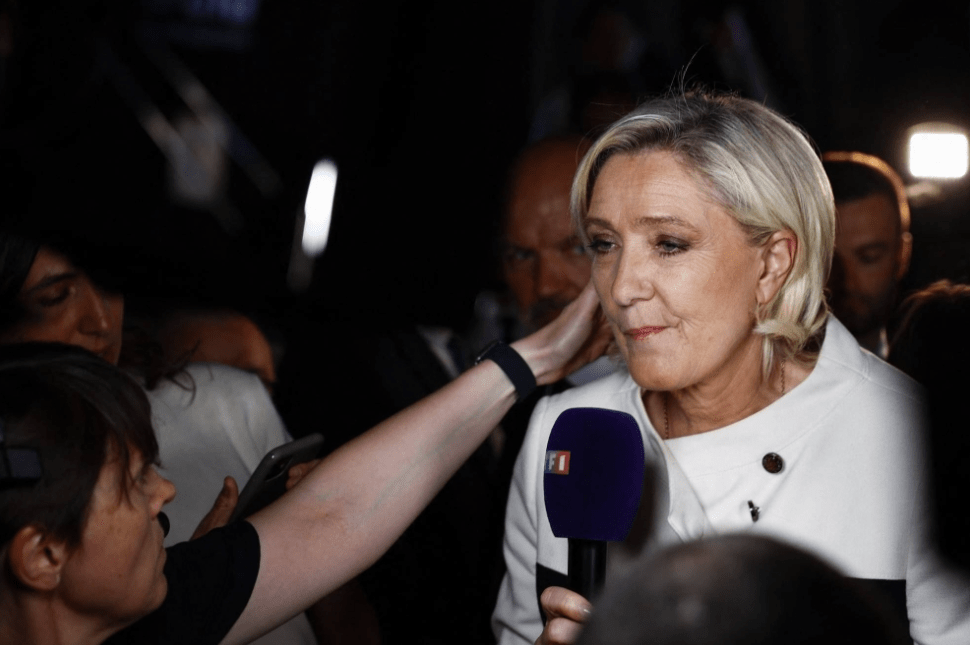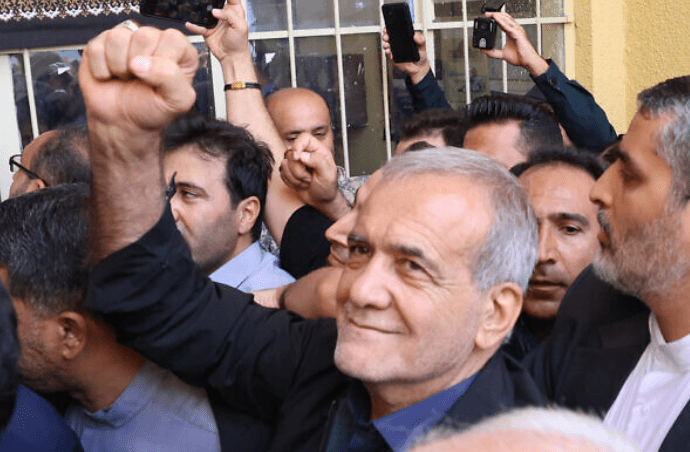A left-wing coalition has emerged as the dominant force in the French parliament following tactical voting that stymied the far right, though the future government’s composition remains uncertain due to no group securing an absolute majority.
The unexpected success of the left-wing New Popular Front, which secured 182 seats, compared to President Emmanuel Macron’s centrist Together alliance with 163 seats, and the far right in third with 143 seats, highlighted the effectiveness of tactical voting against Marine Le Pen’s National Rally (RN).
Despite leading in the first round, the far right was ultimately thwarted by significant tactical voting to prevent them from gaining enough seats to form a government.
The left-wing alliance, despite winning the most seats, fell over 100 seats short of an absolute majority. With a high voter turnout estimated at around 67 per cent, no single group achieved an absolute majority of 289 seats necessary to form a government. Consequently, the parliament is expected to be divided into three blocs: the left, centrists, and the far right.

France now faces a period of unprecedented uncertainty regarding the future government’s shape and its likely prime minister. Macron has vowed to continue as president, but he refrained from making a public statement on Sunday night, privately urging caution until final results were confirmed on Monday morning.
Forming a government could now take weeks, with the exact structure remaining unclear, especially with the Olympic Games set to begin in Paris in less than three weeks.
Prime Minister Gabriel Attal announced he would submit his resignation to President Macron on Monday morning. However, he mentioned he might stay temporarily if needed while a new government is established.
“Tonight, a new era begins,” Attal said, emphasising that France’s destiny would now unfold “more than ever in parliament.”
Attal added: “I know that, given tonight’s results, many French people feel uncertain about the future because no majority has emerged. Our country is in an unprecedented political situation and is preparing to welcome the world [at the Olympics] in a few weeks. I will remain in my role as long as duty requires.”

French far-right leader Marine Le Pen’s party is recognised for its anti-EU stance, support for Putin, anti-migrant policies, and extreme Islamophobic views. Credit: Reuters.
The scramble for positions in the new parliament began immediately. Jean-Luc Mélenchon, leader of the left-wing France Unbowed party, stated: “The president must invite the New Popular Front [left alliance] to govern.” Outgoing Interior Minister Gérald Darmanin remarked: “I note that today, no one can say they have won this legislative election, especially not Mr Mélenchon.”
Raphaël Glucksmann of Place Publique and the Socialist party, part of the left alliance, said: “We’re ahead, but we’re in a divided parliament … so we’re going to have to act like grownups. We’re going to have to talk, to discuss, to engage in dialogue.”
Despite finishing third, the results were historic for the RN, marking its largest-ever tally in a parliamentary election, increasing from the 88 seats it held before parliament was dissolved. However, it was much lower than expected after topping the first-round vote last week.
Jordan Bardella, the RN president, criticised the coalition formed to thwart the far right, calling it a “disgraceful alliance.”
Le Pen, who plans to run for president for the far right in 2027, asserted that their rise to power would persist. She said, “The tide is rising. It did not rise high enough this time, but it continues to rise and our victory has simply been deferred.”
The RN’s limited success demonstrated the effectiveness of a tactical voting pact formed by centrists and the left to hinder the far right.
More than 200 candidates from the left and centre withdrew from the second round last week to avoid splitting the vote against the RN. These parties urged voters to support any candidate opposing the RN to prevent the far right from securing an absolute majority and forming a government.
Founded as the Front National by Jean-Marie Le Pen in 1972, the RN was portrayed by the left and centrists as a threat to democracy, promoting racist, antisemitic, and anti-Muslim views.
Brice Tinturier, director general of Ipsos, noted that the results showed most French voters still regarded the RN as dangerous.
Clémence Guetté, re-elected for France Unbowed, commented that the RN’s lower-than-expected score indicated that “this is not a racist country and France does not want to be divided.”
On Sunday, Spanish Prime Minister Pedro Sanchez praised France’s “rejection of the far right.” He welcomed the surprising outcome, alongside the recent UK general election where the centre-left Labour party achieved a landslide, stating both countries “have said YES to progress and social progress and NO to going back on rights and freedoms.”
US Senator Bernie Sanders also congratulated the French left for “taking on right-wing extremism and winning.”
Brazil’s President, Luiz Inacio Lula da Silva, congratulated the NFP, tweeting that he was “very happy” with the “demonstration of greatness and maturity” shown by the unification of leftist and centrist political forces to block the far right’s election.
Lula wrote: “This result, as well as the victory of the Labour party in the United Kingdom, reinforces the importance of dialogue between progressive segments in defence of democracy and social justice. They should serve as an inspiration for South America.”
Lula has a personal connection with Mélenchon, who visited him in jail for corruption in 2019, a case he claimed was politically motivated and where his conviction was later overturned.
When voting projections were announced, there were hugs, joyful screams, and tears of relief at the left’s gathering in Paris.
The Place de la République in central Paris was filled with crowds and a celebratory atmosphere, with left-wing supporters playing drums, lighting flares, and chanting “We’ve won! We’ve won!”
“I’m relieved. As a French-Moroccan, a doctor, an ecologist activist, what the far right was proposing to do as a government was craziness,” said 34-year-old Hafsah Hachad.
Macron shocked his government and party by calling snap elections on 9 June after his centrists were trounced by the far right in the European elections.

